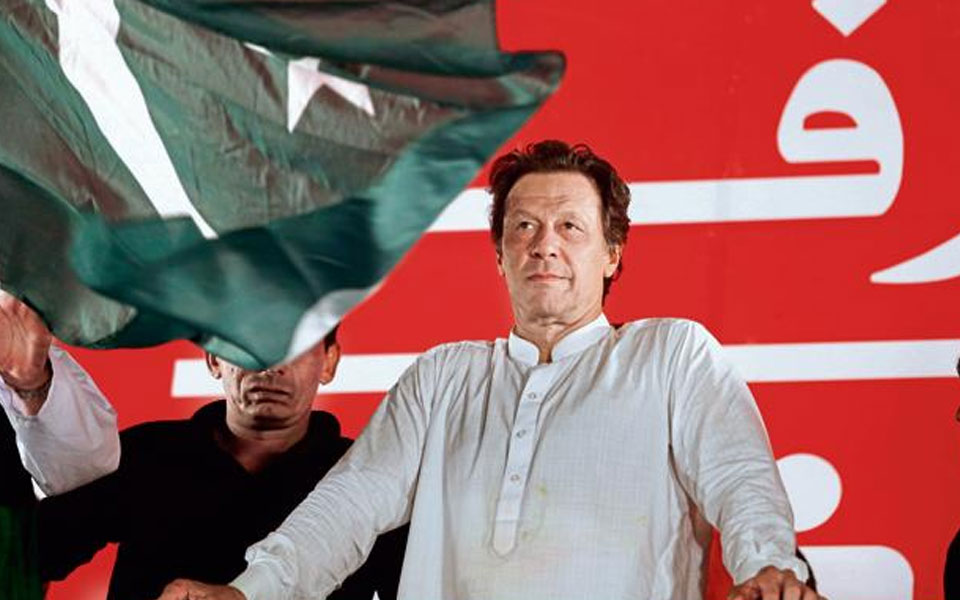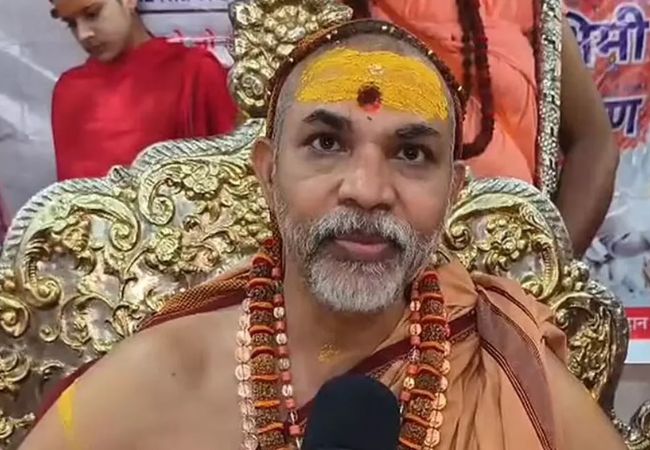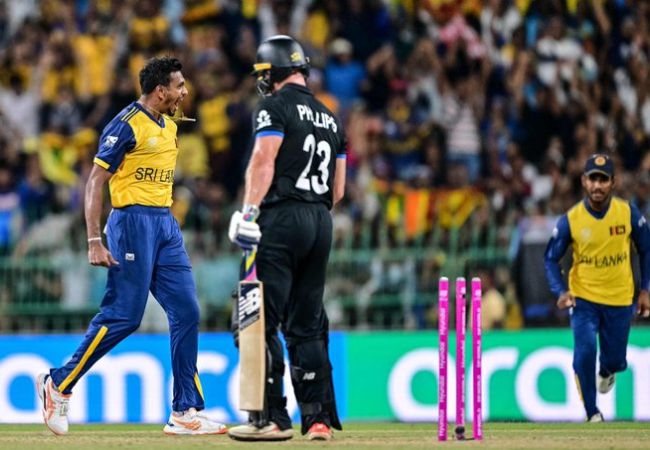On August 11, when cricketer Imran Khan will be sworn in as Prime Minister of Pakistan, it will be only the second time the nation will be witnessing a changeover from a civilian to civilian government. In a history full of twists and turns during the last 70 years since its creation, Pakistan has suffered four bouts of Army rule and three suspensions of the Constitution. A graffiti seen after Zulfiquar Ali Bhutto’s swearing in as prime minister on a Karachi wall in the early 1970s had summed up the reality well. It said: “Sorry for the brief democratic interruption! Military rule will be restored soon.”
Pakistan had not been fortunate to have visionary leaders like we in India had in Nehru, Gandhi, Ambedkar, Patel and Azad. Nor did the nation emerge out of any sustained struggle which could have enabled its leaders to forge unity around a cogent ideology. Its founder Mohammed Ali Jinnah barely lived for a year to lend it a sound footing and durable institutions. Army being the only organized force, thus found itself in a position to replace inept and corrupt civilian rulers frequently.
Islam did not prove an effective glue for the two wings flung hundreds of miles apart across Indian territory. A Punjabi-dominant Army and imposition of Urdu widened the gulf further and led to the loss of its eastern wing in 1971. Young nation’s history makes it evident that Pak rulers were gravely mistaken in conceiving India as ‘a polyglot, riven with mysterious and frightening contradictions’,* and that the ‘cowardly, ill-organised Indian army will offer no effective response to any push from Pakistani Army’**. This doctrine dominated the Pakistani psyche in its formative phase and has now melted considerably. But the concern for coming up with sound Institutions to provide a bulwark for the nascent democracy on par with India has not been adequately realized.
Pakistan thrived on a false sense of superiority engendered by its Army rulers. Wishful thinking and empty boasts dominated political narrative and analysis in Rawalpindi for several decades. It was only after the loss of the eastern wing that Pakistani intellectuals, media and academia began to look for reasons for its dismemberment and an earnest search was launched for a national credo.
Even while it oscillated between military rule and civilian autocracy, the nation has failed to address the basic malady, the feudal system which stifles democracy at its roots and nurtures ills such as bonded and child labour, illiteracy, gender inequality, honour killings and extreme economic inequalities. These were overlaid with fundamentalism, religious extremism, and militancy by those who envisioned Jihad in Afghanistan and Kashmir as rallying points for a nation that sorely lacking a positive national agenda. The rich and the haves who had the luxury of reaching the corridors of power in the moribund nation added sectarian fault lines through laws like blasphemy and declaration of Ahmadis as non-Muslims.
When it came to playing with religious dogmas, there was no difference between leaders elected by the people and usurpers of power. Ahmadis were excommunicated by a legislation during the reign of Bhutto and Blasphemy laws were brought under Gen. Ziaul Haq.
Pakistan has betrayed a strange alchemy with democratically elected leaders behaving as autocrats and military rulers trying to civilianize their rule through convenient handmaidens. Bhutto and Benazir both were arrogant to the core and tried to turn the nation into a personal fiefdom. Amassment of personal wealth was the core concern for Nawaz and Shahbaz duo, and Asif Zardari. Judiciary received a raw deal at the hands of Gen. Pervez Musharraf. Zia conducted the first general elections on a partyless basis and put an unknown Muhammad Khan Junejo on the power pedestal. The system thus bred a battery of sycophants or bloodthirsty enemies. When in power most time is spent on either lavishing favours on acolytes or fending off attacks from foes. Development and policy initiatives are relegated to the backseat. Once out of power, they head for Dubai, England or Saudi Arabia, by now well-known destinations for self-exiled politicians.
Army’s influence is all-pervasive. Defence Colonies across cities of Pakistan are studded with lush gardens and meadows, posh villas and well-maintained golf grounds. Nearly a third of the national budget is devoted to the Defence. Civilian leaders can think of trimming their entitlements only at their own peril. The past decade of civilian rule suggests that elected leaders have learnt to remain on the right side of the starched generals.
Probity in public life is a distant dream in Pakistan. Impunity is built into the system. Institutions holding the politicians accountable have been systematically sabotaged over the years. Justice Hamoodur Rahman Commission Report on loss of East Pakistan was never made public. What caused crash of plane carrying President Gen. Ziaul Haq is not known? The latest example is that of National Reconciliation Ordinance (NRO) which seeks to whitewash the corruption and crimes of all past politicians. Imran Khan has made a note of it in his book Pakistan: A Personal History (Transworld Publishers, London): ‘More than 8,000 bureaucrats, govt officials, bankers and politicians charged with corruption offences between 1986 and 1999 were given an amnesty, including Benazir and Zardari.’
Imran Khan inherits a nation deep into a mess. His own words will urge action from him. Indeed, a fearsome ordeal stretches ahead of him. Will he be upto the challenge, is the big question.
-----------------------------
*Words by Zulfiquar Ali Bhutto in Washington Post after the death of Prime Minister Jawaharlal Nehru.
**This is how President Gen. Ayub Khan visualized India.
Let the Truth be known. If you read VB and like VB, please be a VB Supporter and Help us deliver the Truth to one and all.
Lucknow (PTI): The Uttar Pradesh Congress on Wednesday staged a statewide protest demanding a fair and transparent inquiry into the FIR lodged against Swami Avimukteshwaranand Saraswati and those who filed the complaint against him.
In a statement issued here, the party said memorandums addressed to Prime Minister Narendra Modi were submitted through district magistrates in all districts of the state.
Uttar Pradesh Congress spokesperson Manish Hindvi told PTI that the memorandums were handed over through the district administration in all 75 districts.
In the memorandum, the party alleged that Saraswati and his disciples were "unnecessarily harassed and humiliated" by police on the occasion of Amavasya and were prevented from taking a ritual bath (at the Magh Mela). It further alleged that some disciples were manhandled and taken to a police station.
The memorandum also claimed that an FIR was later registered against Saraswati, his disciple Swami Mukundanand Brahmachari and several unidentified persons in a sexual harassment case. It termed the case a "conspiracy" aimed at tarnishing the seer's reputation.
Citing Articles 25 and 26 of the Constitution, the memorandum stated that these provisions guarantee religious freedom and the right of religious denominations to manage their own affairs.
It described the position of shankaracharya held by Saraswati as "one of the highest spiritual posts in Sanatan tradition" and alleged that the entire episode appeared to have been "orchestrated in a planned manner".
"We request that the background of the persons who got the FIR registered be investigated in a transparent manner by a retired high court judge and strict action be taken against them," the memorandum said.
It also sought a "fair and transparent probe" into the allegations levelled against Saraswati so that the truth could be established.
Earlier, Uttar Pradesh Congress president Ajay Rai had told reporters in Varanasi after meeting Saraswati that the party stood firmly with him.
The Congress said it would continue to press for an impartial inquiry into the entire episode.
On February 21, an FIR was lodged in Prayagraj against Saraswati and his disciple Mukundanand Brahmachari on charges of sexually abusing two persons, including a minor, over the past year at a gurukul and religious congregations, including the recently concluded Magh Mela.
Days after he was booked, Saraswati had said on Monday that he would not oppose his arrest and asserted that the "fabricated story" would be exposed sooner or later.
At a press conference on Wednesday, Saraswati alleged that criminals rule in Uttar Pradesh, level allegations and influence investigations, as he denied having any contact with the two persons for whose alleged sexual abuse he has been booked.



_vb_77.jpeg)
_vb_00.jpeg)
